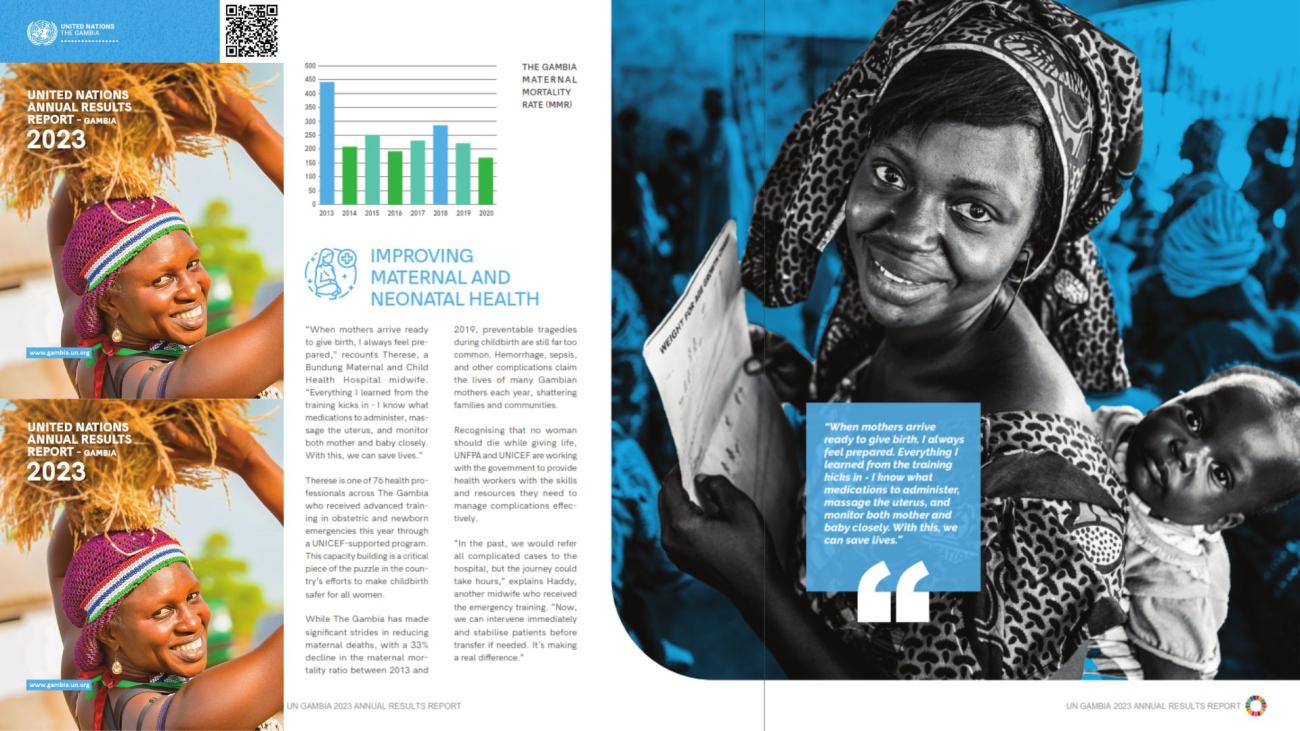Training programs supported by UNICEF and UNFPA are empowering Gambian midwives like Therese to manage childbirth complications, reducing maternal mortality and
IMPROVING MATERNAL AND NEONATAL HEALTH
“When mothers arrive ready to give birth, I always feel prepared,” recounts Therese, a Bundung Maternal and Child Health Hospital midwife. “Everything I learned from the training kicks in - I know what medications to administer, massage the uterus, and monitor both mother and baby closely. With this, we can save lives.”
Therese is one of 76 health professionals across The Gambia who received advanced training in obstetric and newborn emergencies this year through a UNICEF-supported program. This capacity building is a critical piece of the puzzle in the country’s efforts to make childbirth safer for all women.
While The Gambia has made significant strides in reducing maternal deaths, with a 33% decline in the maternal mortality rate between 2013 and 2019, preventable tragedies during childbirth are still far too common. Hemorrhage, sepsis, and other complications claim the lives of many Gambian mothers each year, shattering families and communities.
Recognizing that no woman should die while giving life, UNFPA and UNICEF are working with the government to provide health workers with the skills and resources they need to manage complications effectively.
“In the past, we would refer all complicated cases to the hospital, but the journey could take hours,” explains Haddy, another midwife who received the emergency training. “Now, we can intervene immediately and stabilize patients before transfer if needed. It’s making a real difference.”






